This “Limited Edition” Blu-ray from Arrow Video is now available for purchase.
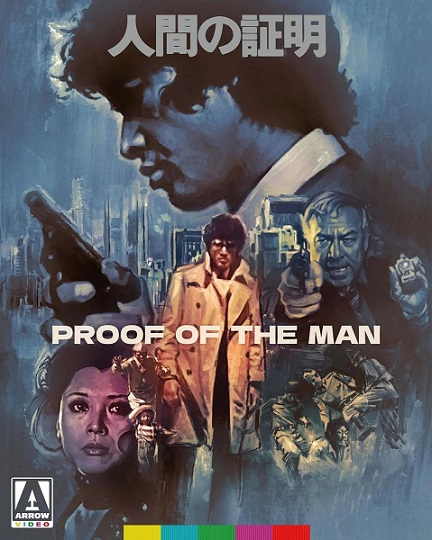
It’s always thrilling when a movie enthusiast like myself learns about a movie he had no idea even existed. Despite growing up on a steady diet of crime movies from the 1970s, Proof of the Man was one that I had never heard of. This Japanese production was notable for a large part of its story being shot on location in New York City, and also featuring a major US star in a supporting role. The film was a box office smash in its homeland, but unfortunately didn’t garner much of a release in this part of the world. Thanks to Arrow Video, the movie is now debuting on Blu-ray in North America, so that everyone can catch up with it.
In watching the film, it’s clear that it blends some odd elements, including crime tropes with, at times, grandiose melodrama. One can see how this might not have worked for some international audiences. But the photography and location work is incredible to behold. All that I could find about the transfer is that a 4K restoration from Kadokawa was used. Perhaps because it was a big title that was very popular in Japan, but the film has been kept in stellar condition and looks phenomenal. Overall, the movie is a completely fascinating and unique work with interesting subtext that will keep viewers engaged throughout. As with other Arrow Video releases, the distributor has included great extras that give background information on the picture that will help acclimatize viewers to some of the film’s themes and ideas.
The story begins with African-American Johnny Hayward (Joe Yamanaka) buying a plane ticket from New York to Tokyo, Japan. Upon his arrival, he immediately heads to a hotel conference area where a fashion show is taking place. Later, he is found stabbed and police are called to the scene. Investigator Munesue (Yusaku Matsuda) and his partner (Hajime Hana) interview all involved in the show, including fashion designer Kyoko Yasugi (Mariko Okada).
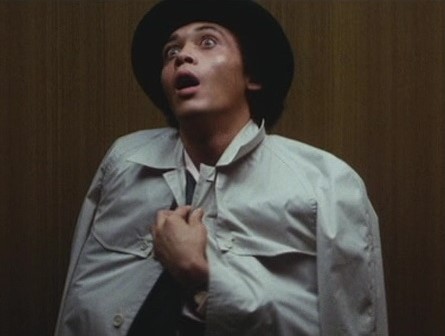
As if that wasn’t bad enough for Kyoko, that evening her troubled son (Koichi Iwaki) accidentally hits a woman with his car and hides the body. The young man becomes guilt-ridden, and so Kyoko suggests that he and his girlfriend spend time in New York until things blow over. As the case progresses, Munesue becomes suspicious of both Kyoto and her son, eventually heading to New York himself and teaming with local cop Ken Shuftan (George Kennedy) to locate the offspring. But the visiting detective struggles to overcome his own past, seeing infuriating reminders of his childhood under US occupation.
As mentioned, there’s an odd mix of crime and melodrama on display. Joe Yamanaka makes an impression in his brief role as a man desperate to get to Tokyo and take care of some urgent personal business. Lead Yusaku Matsuda brings the necessary intensity to his part as Munesue, a hard-nosed detective on the trail of a killer, and Kennedy is excellent as always as the cop trying to assist the hero new to the city.
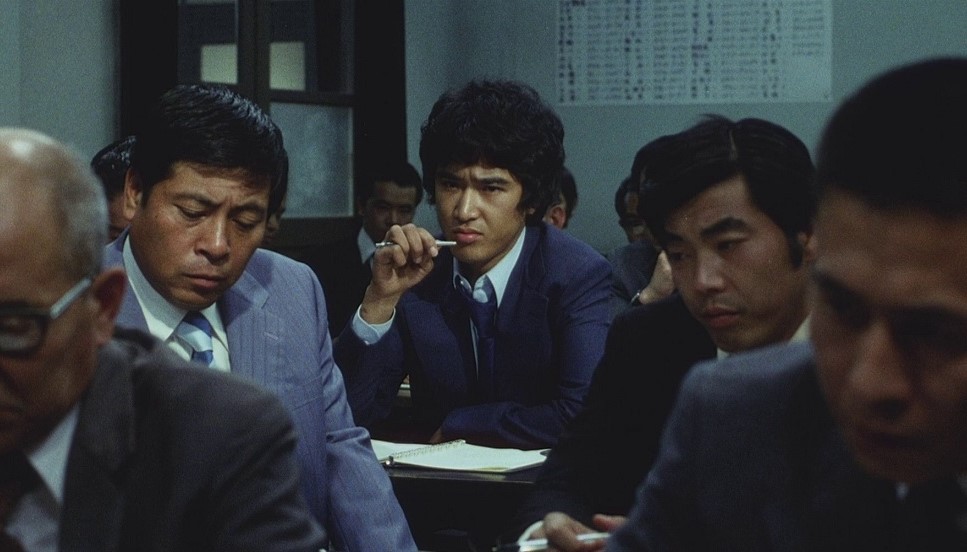
The movie does benefit from the subtext going through all of these stories. A flashback reveals that before her time as a successful fashion designer, Kyoko Yasugi was struggling to survive under the US rule. In fact, she was attacked and raped by soldiers in the streets. Munesue, a young boy, watched his dad come to her defense and die in the process from the beating that followed. And, after he arrives in the US, it turns out that Kennedy’s Shuftan was part of the same unit responsible. It’s never explicitly addressed, but there are questions as to whether he might have been one of the young men involved.
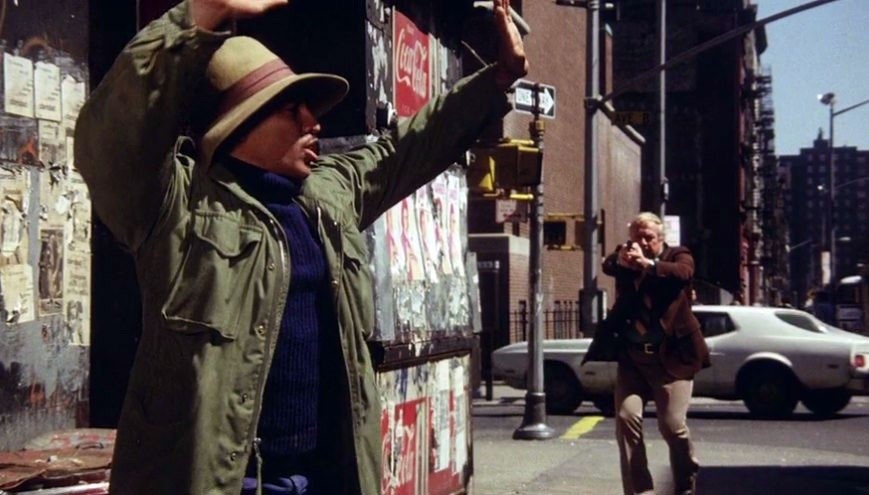
These complications do add a level of interesting drama to the proceedings, as some of the characters are biracial and, shockingly, find themselves being shunned by not only parts of society for their heritage, but also their families. The drama regarding this element of the story is quite powerful, but viewers must be willing to accept a lot of huge story coincidences that bring all of these characters together. There is also reference made to a poem involving a straw hat, a motif that is repeated on several occasions. It is intended to serve as a metaphor, although by the end of the picture you may end up seeing this chapeau as little more than a harbinger of doom for whomever is in its possession.
Again, the photography is stunning and the image quality on the disc is fantastic. The real New York City, Harlem and Tokyo locations are incredibly sharp, adding a great deal of flavor and contrast to the proceedings. And because this is a crime picture, there are a couple of dynamic chases, particularly when Munesue chases down the son of the fashion designer through various areas in New York. The intrigue is interesting and there’s always something unique going on that keeps on engaged in the proceedings. I think the movie has its share of issues, mostly due to the shifting moves between melodrama and action, but still think it was ahead of its time in many respects and enjoyed the story twists, themes and overall experience.
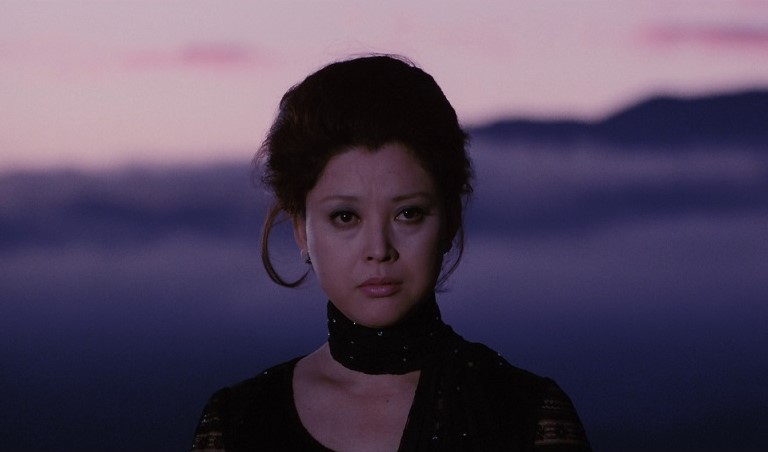
As mentioned, there are a great many bonuses as well. There is an informative commentary featuring Asian film authorities Rob Buscher and Skeme Richards who share their thoughts on this era in New York and how the movie captures the city. They do note some of the exaggerated depictions of life in Harlem, but are quite taken by the themes of the film, discussing the multiracial characters and their challenges. The comments include some of the actors, like musician Joe Yamanaka, who share a real-life history similar to his character (as it turns out, this co-star’s lines may have been dubbed by another actor, and it is revealed that it may have had something to do with an arrest which made him unable to attend looping sessions for the production).
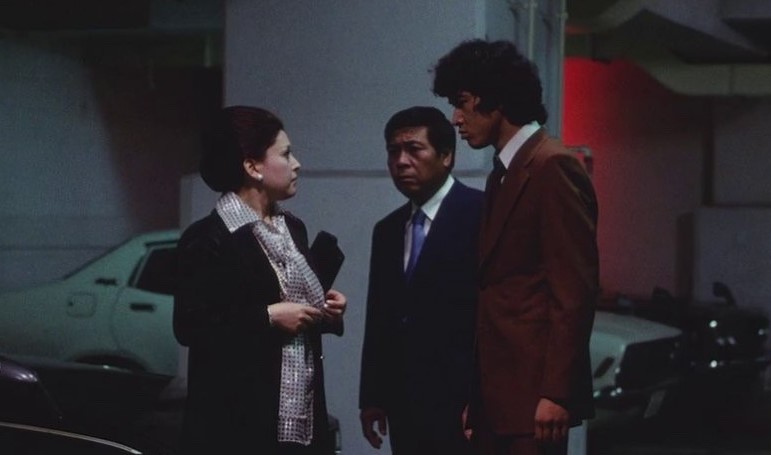
There is an interview with Asian film expert Earl Jackson, who talks about this feature and it many interesting and unique qualities (as well as some of its flaws), noting that it was a very early international production that made full use of its locations in different parts of the world. He also talks about director Jun’ya Satô (The Bullet Train) and the challenges faced in this big production. His insights are very interesting and enlightening.
Japanese film critics Tatsuya Masuto and Masaaki Nomura go into more detail about Jun’ya Satô’s career and this film’s difficult production. This was a multi-studio project and most Japanese companies didn’t share talent and had different working methods. This led to some tension on the set between the filmmaker and crew. You’ll find out about some of the interesting actors who were considered and approached before Kennedy signed on (one big one, Roy Schieder, was unavailable because this shoot overlapped with work on Jaws 2).
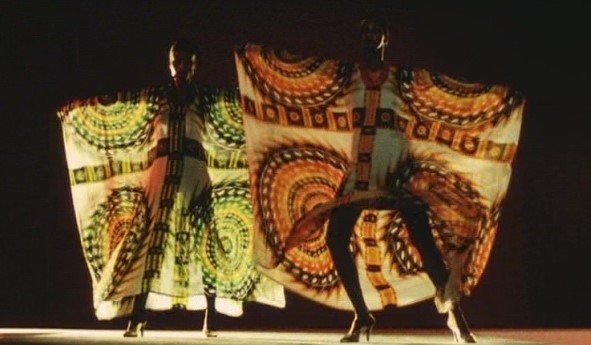
You’ll learn that studio heads also took issue with the odd tone, although the director and star Matsuda didn’t see any problem with the big emotions on display. I suppose they were right, at least as far as financial success goes, as the picture was a massive success in its homeland. They speak for nearly 30 minutes and present plenty of fascinating details about how the movie came to be.
Additionally, this disc contains multiple trailers for the movie and an image gallery. A booklet is also included with writing about the film and its importance in Japanese film history.
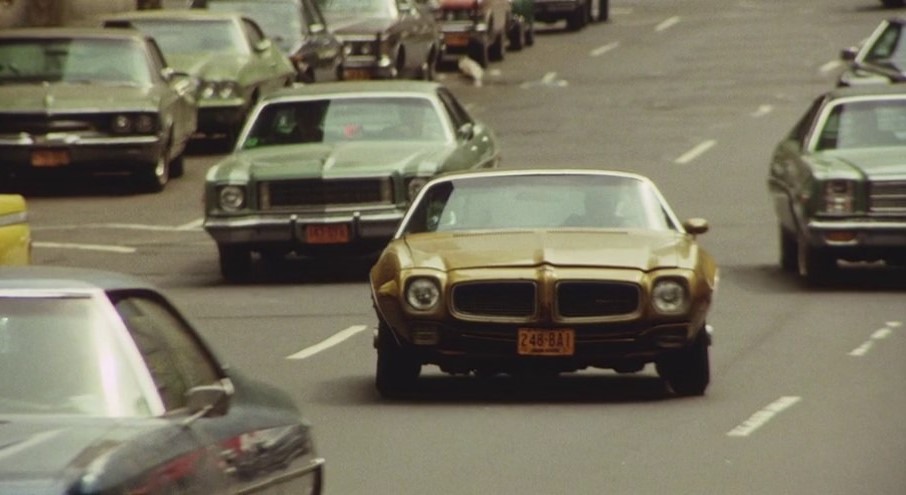
This unique production is big on scale and jam-packed full of ideas. It’s certainly unique and striking, with a strong cast and some memorable moments that include a fantastic chase sequence. Anyone with an interest in international cinema will certainly find a lot to admire, and the presentation couldn’t be better. I’m glad to have the opportunity to discover this picture that I had no idea even existed about a month ago. Proof of the Man is an eccentric but entertaining feature that is well worth picking up on Blu-ray.


